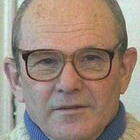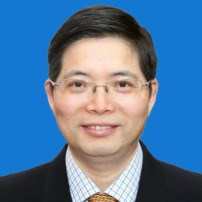Advances in Process Optimization and Control
A special issue of Processes (ISSN 2227-9717). This special issue belongs to the section "Process Control and Monitoring".
Deadline for manuscript submissions: closed (31 July 2023) | Viewed by 972
Special Issue Editors
Interests: optimal control theory; optimum conditions for averaged problems; finite-time thermodynamics; thermodynamic approach in economic systems analysis; control of macrosystems
Interests: finite-time thermodynamics; constructal theory; heat transfer; mass transfer; chemical reaction; constructal theromodynamic optimization
Special Issue Information
Dear Colleagues,
Optimization and process control methods each have their own distinguishing characteristics. They are associated with the instability of external conditions (composition of raw materials, performance requirements, changing dynamic properties of objects, etc.). Therefore, solutions must be “robust”. For many processes (heat transfer, separation, chemical reactors), thermodynamic irreversibility plays an important role when the optimal solution minimizes the production of entropy. The linearized dynamics is the same in most cases, and is described by aperiodic links and pure delay, which makes recommendations for choosing stabilizing controllers quite general.
Prof. Dr. Anatoly Tsirlin
Prof. Dr. Lingen Chen
Guest Editors
Manuscript Submission Information
Manuscripts should be submitted online at www.mdpi.com by registering and logging in to this website. Once you are registered, click here to go to the submission form. Manuscripts can be submitted until the deadline. All submissions that pass pre-check are peer-reviewed. Accepted papers will be published continuously in the journal (as soon as accepted) and will be listed together on the special issue website. Research articles, review articles as well as short communications are invited. For planned papers, a title and short abstract (about 100 words) can be sent to the Editorial Office for announcement on this website.
Submitted manuscripts should not have been published previously, nor be under consideration for publication elsewhere (except conference proceedings papers). All manuscripts are thoroughly refereed through a single-blind peer-review process. A guide for authors and other relevant information for submission of manuscripts is available on the Instructions for Authors page. Processes is an international peer-reviewed open access monthly journal published by MDPI.
Please visit the Instructions for Authors page before submitting a manuscript. The Article Processing Charge (APC) for publication in this open access journal is 2400 CHF (Swiss Francs). Submitted papers should be well formatted and use good English. Authors may use MDPI's English editing service prior to publication or during author revisions.
Keywords
- optimal control
- heat transfer
- mass transfer
- separation
- chemical reaction
- finite-time thermodynamics
- dynamic optimization






